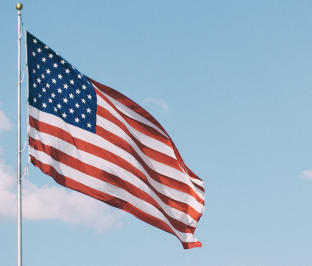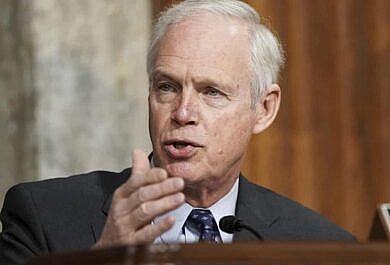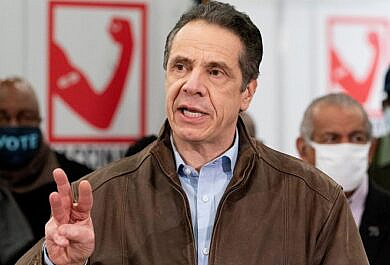Before firing up the grill and finding that perfect spot to watch the fireworks, Americans should take a step back and remember why we celebrate Independence Day.
Summary
Before firing up the grill and finding that perfect spot to watch the fireworks, Americans should take a step back and remember why we celebrate Independence Day.
- Martin Gurri wrote for The Free Press, “All immigrants are born on the Fourth of July.” Describing the immigrant experience, Gurri continues, “This amazing history is the property of every American—and it was the legacy that confronted me when I first arrived in this country. But here’s the strange thing: fairly quickly, without my knowing how, I started to think of it as my legacy. I internalized the evolution of freedom the U.S. represents. It belonged to me no less than to any Mayflower descendant—maybe more, since I knew too well the alternative to freedom.”
- J.D. Tuccille urged Americans to “find common ground over freedom” on Independence Day in a piece for Reason. “So, majorities of Americans agree that government doesn’t respect their freedom. Meanwhile, the security state and overbearing authorities are becoming normalized for some. Maybe, while they still have sufficient numbers to do so, those who care about freedom should stop worrying about which liberties are worth defending, and find common ground over liberty itself, the right to make our own choices and guide our own lives. After all, that’s what gave us Independence Day to begin with.”
- Gary Fields, Margery Beck and Rebecca Boone discussed the changing meanings of the word “patriot” for AP News. They wrote, “Millions of Americans will attend parades, fireworks and other Independence Day events on Tuesday, celebrating the courage of the nation’s 18th century patriots who fought for independence from Great Britain and what they considered an unjust government. Those events also will honor the military and those who sacrificed in other conflicts that helped preserve the nation’s freedom over its 247-year history. “That is only one version of a “patriot.” Today, the word and its variants have morphed beyond the original meaning…Trying to define what a patriot is depends on who is being asked.”
![]()
- The New York Times’ Bret Stephens asked, “What is it, then, that we celebrate on the Fourth of July?” Answering his question, he wrote, “What we celebrate, instead, is a decision: one that would outgrow the circumstances of the American Revolution, outstrip its significance as a historical event and outshine the men who waged it, and perhaps, eventually, will outlive the nation for which it was conceived. It was the remarkable decision by Jefferson and his fellow revolutionaries to do something more than revolutionary: to implant a philosophical truth in a foundational document, so that nobody then or in the future could call himself a patriot or a traditionalist without also subscribing to a universal principle that goes beyond patriotism and tradition.”
- CNN’s Brad Lendon posed an interesting question: “Was the last battle of the American Revolution fought in India?” Historian Kathleen DuVal argues, “But in just the past decade or two, historians have broadened their focus and started to write about the Revolutionary War as being, as you say, a world war.” The involvement of France and Spain broadened the conflict beyond North America and the Revolution featured fighting in Europe, the Caribbean and in India. (Author’s note: Professor DuVal was the author’s college professor).
- The Washington Post’s Megan McArdle argued “there’s reason to believe American democracy has a bright future.” She wrote, “U.S. democracy has rebuilt itself from centuries of chattel slavery and another hundred years of Jim Crow; from the Trail of Tears and the Japanese internment; from the Palmer Raids and the Comstock Act and the Red Scare. It recovered from anarchist bombs and urban crime waves and any number of Franklin D. Roosevelt’s wilder schemes, including his plan to pack the Supreme Court. No matter how bad you think things look right now, you can find worse in American history — emphasis on “history.” Americans got through it. We can again.”
![]()
- The hosts of the Ruthless podcast celebrated “A Ruthless Fourth.” Hosts Comfortably Smug, Josh Holmes, John Ashcroft and Michael Duncan discussed everything they love about the Fourth of July.
- Fox News’ Jocko Willink, a retired Navy SEAL, urged Americans to never forget the cost of freedom. “Those of us who served all learned the true value of our freedom—because we saw the price that was paid. We saw our military men and women wounded or killed by rockets, machine guns, and roadside bombs. The price of freedom is the blood of our nation’s finest men and women. We saw what it did to them and to their families. We saw with our own eyes that freedom is not free. The price of freedom is the blood of our nation’s finest men and women. On this Fourth of July, remember that.
- The Federalist’s J. Antonio Juarez argued “honoring Frederick Douglass on the Fourth of July just makes sense.” Although Douglass was not a Founding Father, “In 1852, Douglass gave one of his most famous speeches, titled “What to the Slave is the Fourth of July?” Here, he laid out in stirring detail how it was a “slander upon [the framers’ memory” to call the Constitution a pro-slavery document. He went on to say that the Founding Fathers were “brave” and “great” men but that:”“Their solid manhood stands out the more as we contrast it with these degenerate times. How circumspect, exact and proportionate were all their movements! How unlike the politicians of an hour! Their statesmanship looked beyond the passing moment, and stretched away in strength into the distant future. They seized upon eternal principles, and set a glorious example in their defense. Mark them!”
Author’s Take
On July 5, 1926, President Calvin Coolidge gave a Speech on the 150th Anniversary of the Declaration of Independence. Coolidge gave a stirring defense of the timeless values of the Declaration of Independence against the progressives of his day who desired to move beyond the Declaration for something more “modern.”
About the Declaration there is a finality that is exceedingly restful. It is often asserted that the world has made a great deal of progress since 1776, that we have had new thoughts and new experiences which have given us a great advance over the people of that day, and that we may therefore very well discard their conclusions for something more modern. But that reasoning can not be applied to this great charter. If all men are created equal, that is final. If they are endowed with inalienable rights, that is final. If governments derive their just powers from the consent of the governed, that is final. No advance, no progress can be made beyond these propositions. If anyone wishes to deny their truth or their soundness, the only direction in which he can proceed historically is not forward, but backward toward the time when there was no equality, no rights of the individual, no rule of the people. Those who wish to proceed in that direction can not lay claim to progress. They are reactionary. Their ideas are not more modern, but more ancient, than those of the Revolutionary fathers.
© Dominic Moore, 2023






